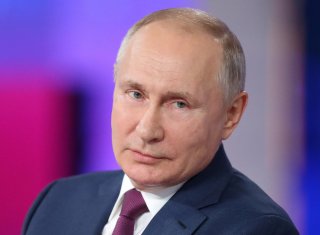The EU Needs to Think Long-Term in Its Relationship with Russia
Disentangling long-term foreign policy priorities from the short- to medium-term domestic agenda in the United States and EU member countries might be a solution to the puzzle from the perspective of Russian decision-makers.
If we look at the debates around the results of the upcoming federal elections in Germany and their influence on the EU-Russia relations two things are clear. It seems that Green Party candidate Annalena Baerbock might bring a new spiral of crisis in the EU-Russia relations by vetoing the Nord Stream II project, while Armin Laschet will assure continuity of the status quo in relations with Russia. The underlying logic of the expert comments seems to be that the Nord Stream II is crucial for Russia (and not so much for Germany), thus, the positions of the candidates on this business project can be considered a game-changer in Germany-Russia and, more generally, in EU-Russia relations.
The framing of the discussions in the media and expert communities (both in Russia and internationally) implies that this is a debate about who is the key decision-maker in relations with Russia, and the answers range from the micro-level to the level of global power games. Commentators suggest that the fate of Russia policy may depend on the following:
-
German environmental NGOs who slow down the building of the Nord Stream II pipeline by endlessly filing lawsuits to suspend construction;
-
German voters who care about the recent catastrophic floods, pandemic, refugees crisis, and green energy;
-
The personal worldviews of a future Chancellor and priorities of political parties, and also peculiarities of coalition-building in the German Bundestag;
-
Shifts in Germany's status when it comes to decision-making at the EU level, for example, if the new Chancellor is perceived within the Union as a less powerful leader than Angela Merkel;
-
The East European members of the Union that may act as spoilers in EU-Russia relations, as became evident at the EU Summit in June 2021;
-
The United States, which is the key ally of the EU and Germany, and has a vested interest in preventing the Nord Stream II project from being completed.
What is amazing, is that Russia is almost absent from the list of decision-makers in this discussion around Nord Stream II. Commentators basically put Russia in waiting mode until a new Chancellor proclaims Germany’s foreign policy priorities in relations with Russia. In a way, a similar waiting mode was self-imposed by Russia in the weeks prior to the Biden-Putin meeting in June 2021.
So how does Russia view the upcoming elections? From the perspective of Russian decision-makers, the laws of international relations should be different from the logic of domestic electoral campaigns. Increased transparency in international politics, intensive media coverage, domestic debates about foreign policy issues prior to major summits, almost no opportunities for behind-the-closed-doors diplomacy without public scrutiny in the Western countries correspond to the values of democratic political regimes, but make the leaders hostages to the preferences of their electorate and of short electoral cycles. Is it possible to conduct long-term planning in international relations if the foreign policy of key global powers may be undermined by the moods of the electorate on mostly short- to medium-term domestic issues? As we know, voters care much more about domestic issues rather than foreign policy.
Not that Western countries are unaware of Russian concerns. The United States and several EU members are worried about alleged past and potential future Russian interference in elections to assure predictability of foreign policy of these countries towards Russia.
Disentangling long-term foreign policy priorities from the short- to medium-term domestic agenda in the United States and EU member countries might be a solution to the puzzle from the perspective of Russian decision-makers. It may not seem feasible for democratic political regimes, but what Russia would prefer to deal with is a compartmentalization of foreign policy into ‘infrastructural’ projects (This does not necessarily mean pipelines. It may be security architecture or nuclear treaties as well.) and current affairs that emerge on the agenda several times a year. The Kremlin is ready for hard talks on current issues, which are important for voters and, thus, re-elections in Western countries, but it prefers to have a certain predictability in strategic issues. Russian relations with Turkey are a good example of this type of foreign policy decision-making.
Some diplomats might feel nostalgic about the Cold War because diplomacy was not a function of public moods. The debate around the elections in Germany gives us another chance to think over the differences in national approaches to diplomacy and the questions of long-term strategizing in international relations.
Dr. Yulia Nikitina is Senior Research Fellow at the Center for Eurasian Studies, Institute for International Studies, MGIMO University, Russia
Image: Reuters

